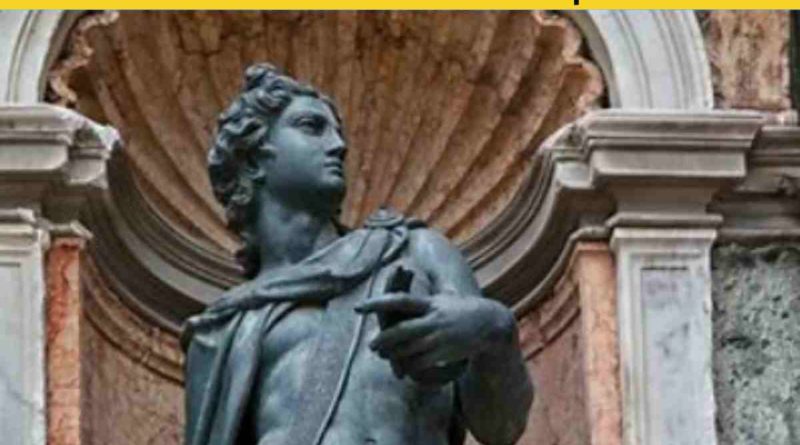How is Adonis Related to Apollo? A Mythological Mystery
How is Adonis Related to Apollo? A Mythological Mystery: In the realm of ancient mythology, tales of gods and mortals intertwine, creating intricate webs of relationships and connections. Adonis and Apollo are two prominent figures in Greek mythology, each associated with unique attributes and fascinating stories. Due to their close association and shared presence in various mythological accounts, there has been speculation about a familial connection between Adonis and Apollo. In this article, we will delve into the mythological narratives surrounding these two figures and explore the intriguing question of how they may be related.
Adonis: The Beautiful Mortal
In Greek mythology, Adonis is renowned for his exceptional beauty and captivating allure. He was the product of a unique union between the princess Myrrha and her father, King Cinyras. Myrrha’s tragic fate involved an ill-fated love for her own father, leading to a series of divine interventions that culminated in her transformation into a myrrh tree. From the tree’s trunk, Adonis was born, symbolizing the cycle of life and death in the natural world.
Adonis was a favorite of the goddess Aphrodite, who fell deeply in love with him. However, his life was cut tragically short when he was fatally wounded while hunting a wild boar, a tale that became a poignant representation of beauty and its fleeting nature.
Apollo: The God of Many Facets
Apollo, one of the most versatile and revered gods in Greek mythology, is associated with various domains, including the sun, music, prophecy, healing, and archery. He is the son of Zeus, the king of the gods, and Leto, a Titaness. Apollo’s birth was an eventful affair, as his mother faced challenges finding a place to give birth due to the jealous rage of Hera, Zeus’ wife.
As the god of the sun, Apollo traversed the skies in his chariot, illuminating the world with his radiant light. He was also a skilled musician, playing the lyre with unmatched grace and captivating audiences with his divine melodies.
Interpreting the Mythological Connection
While Adonis and Apollo share distinct roles in Greek mythology, their connection goes beyond mere coincidence. The ancient Greeks often weaved intricate narratives to explain natural phenomena, human emotions, and celestial occurrences. The relationship between Adonis and Apollo represents a symbolic tale of transformation, beauty, and the cyclical nature of life and death.
The Influence of Aphrodite
One of the most significant aspects of the connection between Adonis and Apollo lies in their relationship with the goddess Aphrodite. Adonis, the mortal youth of extraordinary beauty, captured the heart of Aphrodite, the goddess of love and desire. Their romance became a central theme in many myths, and Adonis’ tragic demise symbolized the fleeting nature of beauty and the inevitability of mortality.
Also, Read Is Secretariat Related to Man o’ War? The Truth Behind the Two Legendary Horses
Apollo, as the god of music and poetry, also had a complex relationship with Aphrodite, as both gods represented aspects of love and passion. Their interactions underscored the multifaceted nature of love in Greek mythology.
Symbolism of Seasons
The myth of Adonis is often linked to the changing seasons, with his life and death mirroring the cyclical nature of nature’s regeneration. Adonis spends part of the year with Aphrodite in the Underworld and the other part in the realm of the living. This seasonal aspect of his myth serves as an allegory for the growth and decay witnessed in the natural world during the passing of the seasons.
Similarly, Apollo’s role as the sun god and his movement across the sky represented the passage of time and the changing seasons in ancient Greek beliefs.
Adonis’ Mortal Heritage
Adonis’ lineage as a mortal, born from the myrrh tree that sprouted from his mother’s tragic transformation, contrasts with the divine heritage of Apollo as the son of Zeus and Leto. This dichotomy highlights the interconnectedness between gods and mortals in Greek mythology, where the boundaries between the divine and the human are often blurred.
Historical Interpretations
Throughout history, scholars and writers have offered various interpretations of the relationship between Adonis and Apollo. Some have suggested that Adonis could be an epithet or an aspect of Apollo himself, representing a specific facet of the god’s multi-dimensional character. Others view their connection as symbolic of the eternal struggle between life and death or as a reflection of the transformative power of love and beauty.
Follow Us On NewUsaNews Facebook Page
The diverse interpretations of their relationship demonstrate the enduring allure of Greek mythology and its capacity to inspire different perspectives.
The Influence of Near Eastern Myths
Another fascinating aspect of the Adonis and Apollo connection lies in the influence of Near Eastern myths on Greek mythology. The story of Adonis shares similarities with the Sumerian myth of Tammuz and the Phoenician myth of Adon, both of which involve the death and rebirth of a god associated with vegetation.
The merging of Near Eastern myths with Greek mythology through cultural exchange and trade contributed to the complexity of their narratives and the development of interwoven storylines.
Conclusion
In conclusion, the connection between Adonis and Apollo in Greek mythology is layered with symbolism, representing themes of beauty, transformation, mortality, and the cyclical nature of life. While they share significant associations with the goddess Aphrodite, their roles and attributes differ, highlighting the multifaceted nature of ancient myths.
Greek mythology’s enduring appeal lies in its ability to convey profound insights into the human condition through captivating stories of gods and mortals. The relationship between Adonis and Apollo exemplifies the richness and complexity of Greek mythology, which continues to inspire fascination and exploration to this day.
